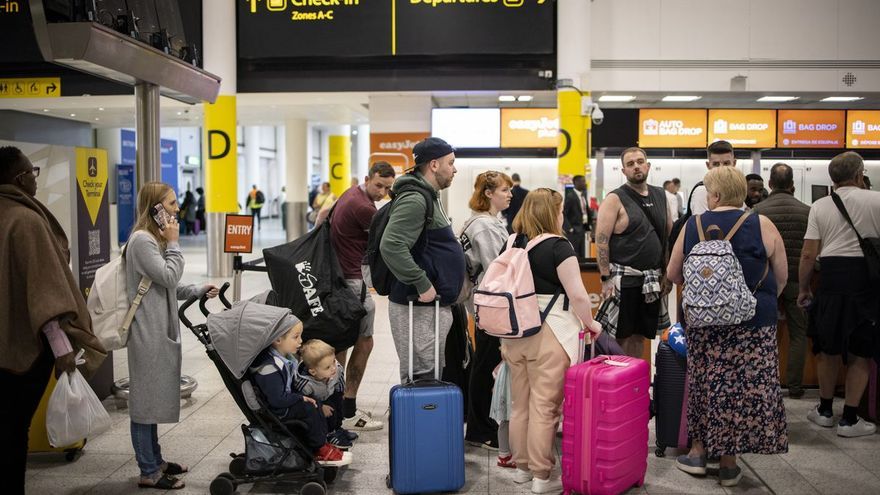A big green screen shows the waiting time. At mid-morning on this first Wednesday in July, crossing the baggage checkpoint at Barcelona airport takes less than five minutes. The scene – confesses an airline worker – has nothing to do with the hustle and bustle and the queues that form at dawn, hours before the earliest flights depart, but nowhere near as worrying as what comes from other European airports. “It’s the same as before covid,” says this Catalan airline operator, who, however, claims to have experienced the busiest start to July that he remembers. Despite the reinforcement of personnel promised a month ago by the Ministry of the Interior, “there is a lack of staff,” he summarizes, agreeing with the diagnosis of all the airports that have been plunged into chaos. The problem? Much more willingness to travel than in previous years, much less staff and a factor that is becoming a summer phenomenon: strikes.
Italy: cancellations, delays and endless queues on low-cost airlines
The chaos recorded in recent weeks at European airports has only partially affected the main Italian cities. In fact, so far, the situation has mostly affected the airports most used by low-cost airlines, such as Bergamo -which serves as a hub for the city of Milan- and the hyper-touristy Venice, Pisa and Florence. On the contrary, Rome’s airport and the main airport of Milan have only suffered marginally, with a limited percentage of cancelled flights (for example: last Saturday, only 1% of flights to or from the Italian capital were cancelled).
The reason for this is that, during the pandemic, “the (Italian) government opted to keep employees on technical lay-off and allocated about 800 million euros to the sector” to avoid massive staff layoffs, as recently explained by the director of the National Agency for Civil Aviation (ENAC), Pierluigi Di Palma.
Still the figures are not insignificant. In the last two weeks, hundreds of flights arriving and departing from Italian airports have suffered cancellations, delays and endless queues .
In particular, according to one estimate, up to 141,000 flights to or from Italian cities, could be suspended or cancelled between now and next September. In this scenario, of particular concern are the airports of Tuscany, where about 150 airport workers are missing and have not been reinstated after the pandemic stoppage, as well as the Venice aerodrome, where the unions have announced a four-hour strike on July 17th. IRENE SAVIO / ROME
Germany: airline staff shortages to complicate vacations
With the start of the school summer vacations, some German airports have been overwhelmed by the number of passengers and flights scheduled for months. The airports of Frankfurt, Cologne/Bonn and Düsseldorf have been among those most affected by flight cancellations and delays. Although the situation has improved over the last few days, airport authorities and consumer protection associations are recommending that you check before you travel and arrive at airports in good time to avoid unpleasant surprises.
The two main reasons given by the industry for the chaos at airports are the huge flight sales following the end of the travel restrictions introduced during the pandemic and the lack of airline staff at airports, their services and airlines. According to the unions, the airlines involved cut a lot of staff during the two years of the pandemic to reduce costs. They now lack sufficient workers to cope with the flow of passengers because many people sought employment in other sectors.
The trade unions also complain that wages, which are comparatively low in terms of work pressure and conditions, are no longer attractive to many people who worked in the sector before the pandemic. In addition, Germany has been experiencing a demographic crisis for years due to a low birth rate, which makes it increasingly difficult to meet the demand for employees in many sectors of the economy.
For the full article, please visit Diario de Ibiza website here.

